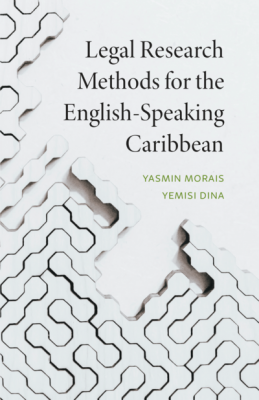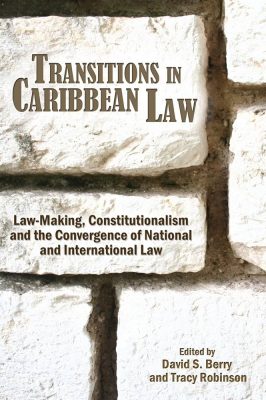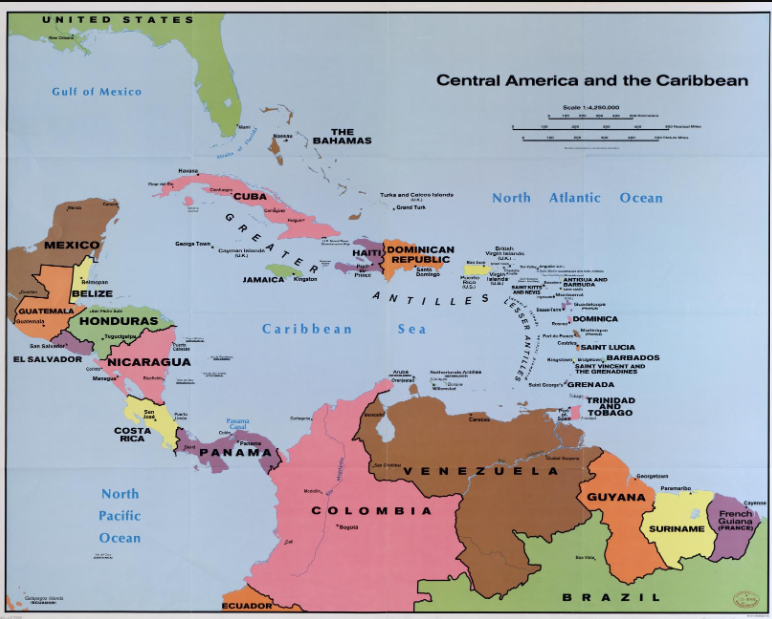National Caribbean American Heritage Month (NCAHM) is a celebration of the history, culture, and impact of Caribbean Americans in the United States. In 2024, UConn Law published a previous blog post which featured two UConn Law Students, Toni Ann Gayle and Farah Jean commenting on their experience as students from Jamaica and Haiti respectively.
This year, we focus on the history of this heritage month and travel back to 1999, when the Institute of Caribbean Studies (ICS) took the lead in advocating for national recognition. That same year, history was made with the Caribbean American Community Briefing at the White House, hosted by the Clinton administration—a powerful moment of visibility and pride for the community.
In 2004, ICS launched an official campaign to designate June as National Caribbean American Heritage Month. The movement gained traction quickly: the House of Representatives passed a bill in June 2005, followed by Senate approval in February 2006. Then, on June 5, 2006, President George W. Bush issued the first presidential proclamation, officially establishing the month-long celebration.
Since then, until this year, every June has been marked by presidential proclamations and nationwide observances that highlight the achievements, resilience, and diverse cultural heritage of Caribbean Americans. From music and food to politics, science, and the arts, this community continues to enrich the American story in countless ways.
There are several resources to assist with researching the area of Caribbean:
Available at UConn Law Library!
 Legal research methods for the English-speaking Caribbean
Legal research methods for the English-speaking Caribbean
Identifies the sources of legal information for the English-speaking Caribbean and provides unique coverage of the independent states and overseas territories in this jurisdiction with a shared history of British colonialism.
 Transitions in Caribbean law : law-making, constitutionalism and the convergence of national and international law
Transitions in Caribbean law : law-making, constitutionalism and the convergence of national and international law
Traces Caribbean legal thought and its development across many areas of law. Issues of administrative, constitutional, corporate and commercial, international, and labour law are explored in the context of the analyses of the Privy Council, the transnational dimensions of law and within the purview of the intrusive role of international law in domestic law.
Online Resources
Yemisa Dina, Caribbean Law Research Globalex (Nov./Dec. 2024)
The Commonwealth Caribbean describes all Caribbean countries geographically located in the West Indies. The region is made up of dependent and independent states. Caribbean legal literature has evolved rapidly in the last decade. This guide provides information on available resources for conducting legal research for the following English-speaking Caribbean countries: Anguilla, Antigua & Barbuda, The Bahamas, Barbados, Bermuda, Belize, British Virgin Islands (BVI), Cayman Islands, Dominica, Grenada, Guyana, Jamaica, Montserrat, St. Kitts & Nevis, St. Lucia, St. Vincent & the Grenadines, Trinidad & Tobago, and Turks & Caicos.
Guide to Law Online: Nations of the World
Links to free online legal materials & pertinent resources in the LOC catalog, pick your country of research.
Caribbean Law Project – Common LII
The Caribbean Law Project is a free‐access resource that makes it easier to find legal information from all Caribbean jurisdictions. Located on the Commonwealth Legal Information Institute (CommonLII), operated by AustLII in conjunction with other free access Legal Information Institutes across the Commonwealth. The Project covers 16 countries and British Territories.
Caribbean-American Heritage Month Official 2025 Book List
Book Bankra – List of thirty books released between 2023 and 2025; Caribbean literature written by Caribbean-connected authors with Caribbean themes. The list includes literary work, horror, mystery, romance, poetry, non-fiction, children, all in one.
As we celebrate this month, we honor the legacy of those who made it possible—and look forward to a future shaped by the vibrant Caribbean American spirit.


